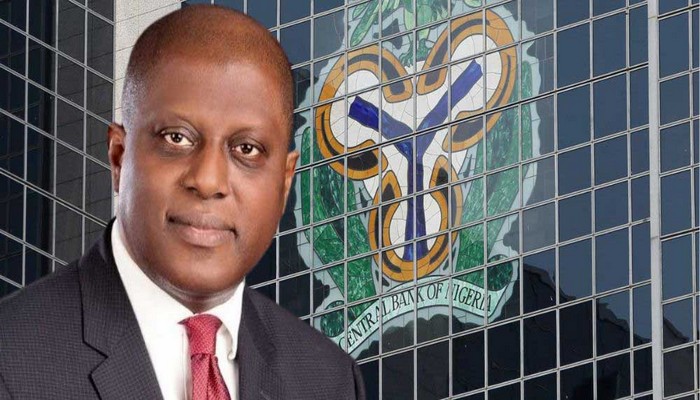
By Grace Ketefe
The issue of rape as a prevailing social scourge in Nigeria once again took the front burner of public discourse within past few days on the heels of disclosure by Busola Dakolo, the wife of the talented musician, Mr. Timi Dakolo, that she had been raped by a popular Nigerian cleric, Pastor Biodun Fatoyinbo.
In the allegation made on the Youtube on last week Friday, which has gone so viral on the social media that other hitherto top issues have been relegated to the background, Biodun had alleged that the cleric, a Senior Pastor of Commonwealth of Zion Assembly (COZA) church had raped her on two occasions twenty years ago, when she was a 17-year-old teenager.
The matter has set the social media on fire, generating controversies that have polarized the public opinions into two inexorably opposing camps. On the one hand are those who are so outraged by the alleged scandal that they were asking for the Pastor to be stripped of his ecclesiastical dignity, shamefully removed from office and prosecuted for rape.
On the other hand, we have those expressing some seemingly primordial sentiments anchored on the imperative of shielding “a man of God” from undue scandal. Some are even blaming Busola for raising the issue after twenty years of remaining silent and would rather wish she remains mute forever, instead of rocking the boat two decades. This matter has already culminated in two simultaneous protests held by some anti-rape activists at the headquarters of the COZA Church in Abuja and the Lagos State branch of the church at Mobolaji Bank Anthony Way, Lagos on Sunday, June 30, 2019.
My attempt in this piece would be to address the issues spawned by this development against the backdrop of the direful scourge of rape as a serious social problem in Nigeria. Thus, I would not focus on dramatis personae in the instant saga neither would I vouch opinion on the veracity or otherwise of the allegations, much less apportion any blame.
I think issue number one here should be to determine whether or not it is apposite to bring a charge of rape after a very long time, perhaps even many decades after the incident must have allegedly happened. In the instant case, the question is one of the few interrogatives that form the substratum of the main discourse.
There is no gainsaying the fact it is highly desirable for the victims of rape to disclose the assault immediately it occurs or as soon as possible. This has many advantages including making it more viable for perishable evidence to be observable for forensic purpose and thus easier to secure conviction.
Secondly justice is a meal that is best served hot! Not only is the cliché, justice delayed is justice denied very pertinent here, early disclosure would also mean that a serial rapist is checked early in his “career” and thus denied the opportunity of unleashing his full sinister potentials on the society.
Be that at it may we must also understand that rape is a peculiar crime because of psychological and sociocultural issues involved. Delay in making a disclosure or bringing a formal accusation of rape should be gleaned from the sociocultural perspective which stacks high odds against the female gender as regards norms in sexual matters.
Our society is one which unfortunately subjects the victim of rape to undue trauma of revictimization, ostracism and stigmatization. Many young ladies have been shunned by suitors just because they had been violated against their wish! Thus, many victims have chosen to remain silent instead of exposing their predators for the fear of unwitting backlash by the society. This is one reason why we need to exercise some measure of understanding if victims do not make disclosure for many years until some prevailing circumstances force or embolden them to come out eventually with the truth.
As a matter of fact, I believe that those that come out at all should be encouraged and lauded for the act of courage. Unlike in the West, the cultural orientation in Nigeria, and perhaps many other African countries, does not support sincere act and principles stance that inspire women to disclose sexual abuse and exploitation. Rather it seems to conduce more to suppressing such disclosure than encouraging it.
One positive thing under this head is that our criminal jurisprudence does not discriminate against the delay in bringing criminal prosecution. The principle of laches and acquiescence in civil law does not apply to criminal cases, and since rape is a crime, an accused person can be prosecuted at any time for the alleged crime. So, delay does not bar institution of criminal proceedings no matter the time span between the commission and the day of reckoning.
The second issue that stands out for comment on the matter is the issue of fair hearing. It is the basic concrete on which the entire superstructure of justice rests, so it cannot be ignored. So, in spite of seriousness of the matter at hand, any informed person with more than a dilettante’s knowledge of human rights should know that nobody should be “hanged” on the basis of an accusation levelled in the social media, especially when the alleged predator has vehemently denied the allegation.
Section 36 (1) of the 1999 Constitution unequivocally guarantees the freedom to fair hearing to every person when it provides thus:
“In the determination of his civil right and obligation, including any question or determination by or against any government or authority, a person shall be eligible to a fair hearing within a reasonable time by a court or other tribunal established by law and constituted in such a manner as to secure its independence and impartiality”
Note the that the Constitution in the above quote does not say a person should be given fair hearing by a court of social media but by “a court or other tribunal established by law” We should therefore refrain from calling for the head of anybody yet simply because we are outraged by the severity of the allegation. I think what is appropriate is that we sustain the agitation and make advocacy for state intervention so compelling that the law enforcement agents would be left with no other option to wade into the matter and investigate same until the truth is unraveled and justice is done.
A corollary to be above submission is to interrogate the legal and moral propriety of the protests held by anti-rape protesters on Sunday at the premises of the COZA churches at both her Abuja headquarters and the Lagos branch.
To start with, human rights activists of course have the legal and moral rights to stage protests to convey their grievances against any aberration of law and order including any issue that impinges or impacts negatively on human rights. However, this protest in this instance should be engineered in such a way to draw the attention of the police authorities and pressurize them to invite the Pastor for interrogation which might lead to prosecution if a prima facie case is established against him.
Therefore, it would appear that the more appropriate venue for the demonstration should have been the Police headquarters in Abuja with the placards conveying clear messages that the police should wade into the matter. Afterall, rape is a crime and every crime is committed against the state and not just the victim.
The statistics on incidence of rape in Nigeria really paints a really shocking and pathetic story, The National Violence Against Children Survey (VACS) carried out in 2014 by the Federal Government of Nigeria established that:
- 1 in 4 girls and 1 in 10 boys in Nigeria experience sexual violence before the age of 18 years.
- 84% of females and 61% of males in Nigeria who experienced sexual violence before age of 18 years do not know where to seek help
- Only 4% of girls and 2% of boys in Nigeria received help after experiencing sexual violence.
That being the reason why we should always allow the law to take its course by ensuring the guilty are punished; we should not be treating of rape with any form of sentiment.
In the final analysis, even though the matter is left for the court of law to decide the culpabilities and liabilities of the parties in this case based on its findings when the matter eventually comes before it, I think I will still stand by Busola Dakolo, for the simple reason that she courageously came out to make allegations many in her position would be too afraid to make.
We will actively encourage more women who have been victims of rape, sexual abuse of any kind and indecent assault to emulate such courage and name their violators. This would help in stemming the tide of the rapacious menace of rape afflicting our society.
The police authorities are hereby enjoined to always attach due importance to allegation of rape. We have it on record that many genuine allegations have been waived aside by the police who, for the reasons best known to them, think it is not a matter of priority! This has been one of the reasons why the battle against sexual abuse has been difficult to fight.
***Grace Ketefe, Obafemi Awolowo University (OAU) Ile-Ife-trained lawyer, is Executive Director, Cece Yara Foundation






